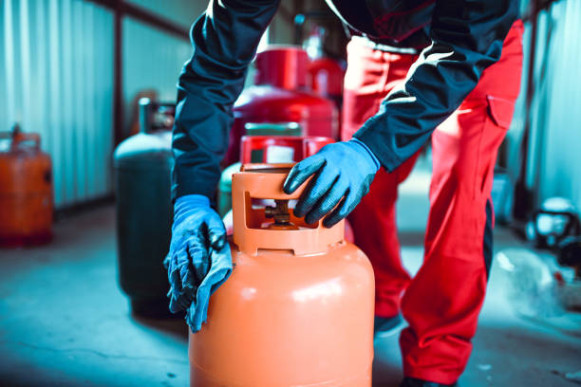- 4357
- 0
Sharing Ideas and Updates on LPG in Nigeria and related information to enable effective collaboration within the LPG Value Chain
Government Action Amidst Soaring Cooking Gas Prices.

The recent surge in the price of Liquefied Petroleum Gas (LPG) in Nigeria has prompted a swift response from Minister Ekperikpe Ekpo, the Minister of State for Petroleum Resources (Gas). According to reports from The Nation, the spike in LPG prices to over N900 per kilogram in certain regions has raised concerns, leading to a meeting convened at the NNPC Towers in Abuja.
The gathering brought together key figures from Chevron Nigeria Limited, headed by Sansay Narasimi, alongside representatives from the Nigerian Midstream Downstream Petroleum Regulatory Authority (NMDPRA) and the Nigerian National Petroleum Corporation (NNPCL), led by Farouk Ahmed.
Ekpo, conveying President Bola Tinubu's concerns, underscored the impact of surging cooking gas prices on the populace, highlighting Nigeria's abundant gas reserves and the necessity of prioritizing domestic supply over exports by multinational firms. Expressing the urgency of the situation, Ekpo stressed, "With the exponential increase in the price of LPG, there is the need for the Federal Government to intervene, and I am representing this at this moment. We acknowledge that some producers are exporting while we are faced with the challenges of importation."
Recognizing the looming surge in demand in December and the public interest, Ekpo emphasized the necessity for collaborative efforts to ensure gas supply security and stability within the country.
In response to the challenges, the gas minister established a committee headed by the ACE of NMDPRA. This committee is tasked with presenting actionable recommendations within a week to augment supplies and alleviate the soaring prices of LPG.
Our Opinion
While the government's recent intervention led by Minister Ekperikpe Ekpo signals a proactive step towards addressing the surging Liquefied Petroleum Gas (LPG) prices in Nigeria, there's room for further action.
The establishment of a committee to offer recommendations within a week is a positive move, showing a commitment to finding solutions. However, the effectiveness of these recommendations in stabilizing prices and augmenting supplies remains to be seen. The urgency of the situation, particularly with an impending surge in demand in December, necessitates more immediate and comprehensive strategies.
Expanding the Scope of Solutions: To complement the short-term recommendations, a multi-pronged approach might be beneficial. This could involve exploring incentives or regulatory measures to encourage local production of LPG, reducing dependency on imports. Additionally, fostering partnerships with local producers and facilitating their capacity expansion could bolster domestic supply.
Transparency and Collaboration: Enhanced transparency in the supply chain and collaboration between government bodies and industry stakeholders are crucial. Encouraging open dialogue and cooperation can streamline processes, identify bottlenecks, and facilitate more effective solutions.
Investment in Infrastructure: Investment in infrastructure, such as storage facilities and distribution networks, is vital for ensuring a consistent and reliable supply of LPG across the country. Addressing infrastructure gaps can significantly contribute to stabilizing prices and meeting growing demand.
Sustainable Policy Implementation: Implementing sustainable policies that promote long-term stability in LPG prices is essential. This might involve reviewing and adjusting taxation, tariffs, or subsidy structures to ensure affordability for consumers while maintaining a conducive environment for producers.
Continued Monitoring and Adaptation: Continuous monitoring of market dynamics and consumer needs is key. This allows for adaptive responses to changing circumstances, ensuring that interventions remain relevant and effective in addressing evolving challenges.
In essence, while the government's initial steps are commendable, a more comprehensive and sustained effort is required to tackle the complexities of the LPG market effectively. Embracing a multi-faceted approach, fostering collaboration, and implementing adaptable strategies can pave the way for long-term stability in LPG prices and ensure reliable access for Nigerian consumers.
















0 Comment.